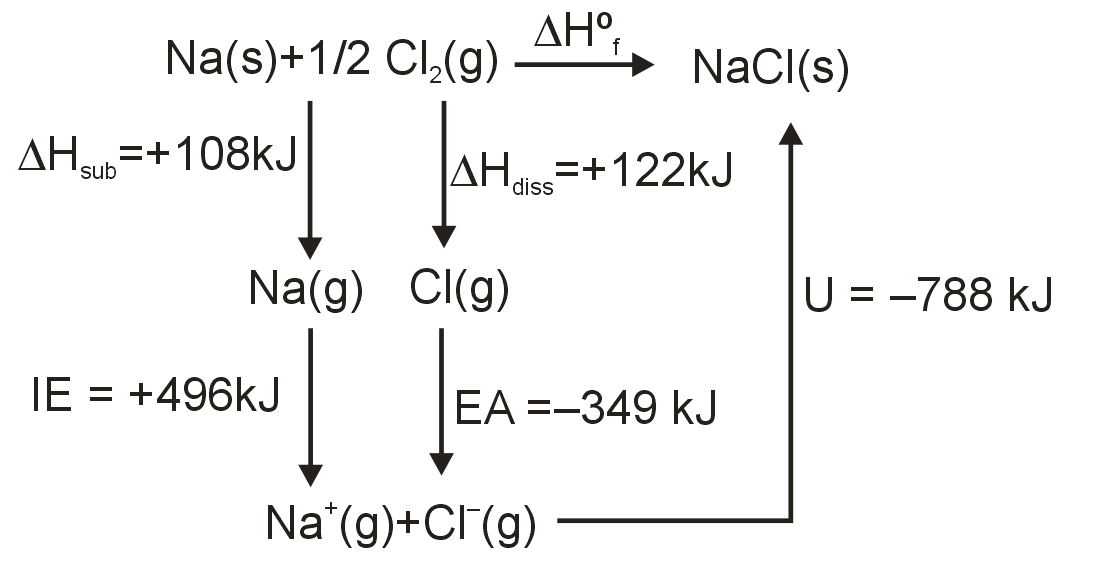Given, sublimation and ionization energy of Na are 107 kJ/mol and 502 kJ/mol respectively and bond dissociation energy required for chlorine gas and its electron affinity energy are 121 kJ/mol and −355 kJ/mol . If ΔHºf is −411 kJ/mol . What is its approximate lattice enthalpy?
Know your College Admission Chances Based on your Rank/Percentile, Category and Home State.
Get your JEE Main Personalised Report with Top Predicted Colleges in JoSA
ΔHfº = ΔHsub + IE + ΔHdiss + EA + U
ΔHfº = 108 + 496 + 122 − 349 − 788 = 411 kJ/mol
The enthalpy change in the formation of an ionic lattice from the gaseous isolated sodium and chloride ions is −788 kJ/mole . That enthalpy change, which corresponds to the reaction
Na(g) + Cl(g) → NaCl(s) is called the lattice energy of the ionic crystal. Although the lattice energy is not directly measurable, there are various ways to estimate it from theoretical considerations and some experimental values. For all known ionic crystals, the lattice energy has a large negative value. It is ultimately the lattice energy of an ionic crystal which is responsible for the formation and stability of ionic crystal structures. For sodium chloride, the Born - Haber cycle is as shown in the image.

Please subscribe our Youtube channel to unlock this solution.